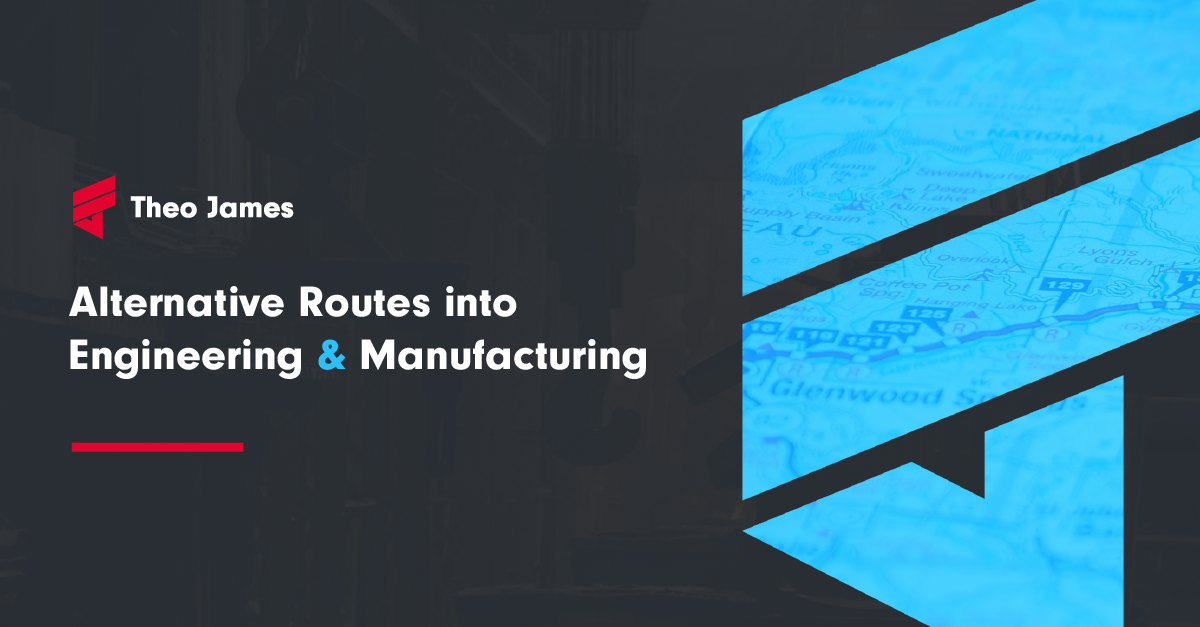As manufacturing and engineering have evolved, the paths into the sector have diverged and become more flexible. Now, direct experience in manufacturing or an engineering degree is not always prerequisite to getting a job at a firm. There isn’t one single route into the industry, this piece will explore alternative ways of getting your foot in the door.

Technology Qualifications
Technology qualifications in data science, robotics, and the Internet of Things (IoT) will be in-demand as Industry 4.0 gathers steam. With technology experience, you could help streamline operations in a smart factory, gather data from IoT devices embedded in machinery, or help the digital transformation of an engineering firm. These skills will be in-demand in many different industries, so manufacturers and engineering firms will be casting their recruitment net wider to hire the best candidates. You may not even need to have direct industry experience.
Robotics Engineering
Another role emerging from Industry 4.0 is that of a Robotics Engineer. According to The International Federation of Robotics, these individuals should have experience in at least one of the following areas:
- Industrial design.
- Robot behavior control.
- The social implications of robotics.
- Autonomous robots.
- Robot applications research.
- Mechanical maintenance.
- Algorithm creation.
This gives you a lot of scope if you are aiming to enter manufacturing and engineering through a robotics route.
Virtual and Augmented Reality Engineering
Similarly, the growth of virtual and augmented reality (VR and AR) is driving demand for specialist engineers who can build the experiences and devices. With the market anticipated to be worth $33.9 billion by 2022, developing AR and VR design skills could be a lucrative move. A passion for graphics and gaming will also prove useful.
Digital Manufacturing Operations
In Industry 4.0, a new role will emerge that acts as a bridge between the factory floor and the Chief Data Officer (CDO) strategy. They will have to take the strategic vision of the CDO and make it work on a day-to-day scale. This will involve experience in applicable technology (like 3D printing and the IoT), plus change management, operations, and strategic implementation.
Employee Experience
Today’s manufacturing and engineering firms face a skills shortage leaving 2.4 million positions unfilled between 2018 and 2028. To address this, organisations must focus on their work experience. Employee experience designers will likely become commonplace to address the skills gaps in firms, help several generations work harmoniously together, and streamline the interactions between workers and robots.
Cybersecurity
As factories and firms become smarter, the risk of a data breach increases. Organisations will increasingly search for top cybersecurity talent to reduce the chances of a hack or other data misuse. Training in the IoT and smart factory-specific cybersecurity techniques will give you the edge over other candidates.
As you can see, there are many routes into manufacturing and engineering – this article touches on just a few of them. Make sure to stay updated with emerging trends and roles to see all the potential possibilities.
The linear path is no more. Instead, there’s a wealth of opportunities for savvy candidates to explore.
If you’re looking to get into the engineering and manufacturing industry or even just looking to take the next step in your career, Theo James Recruitment can help. Contact one of our specialists and let us help you along the way.






